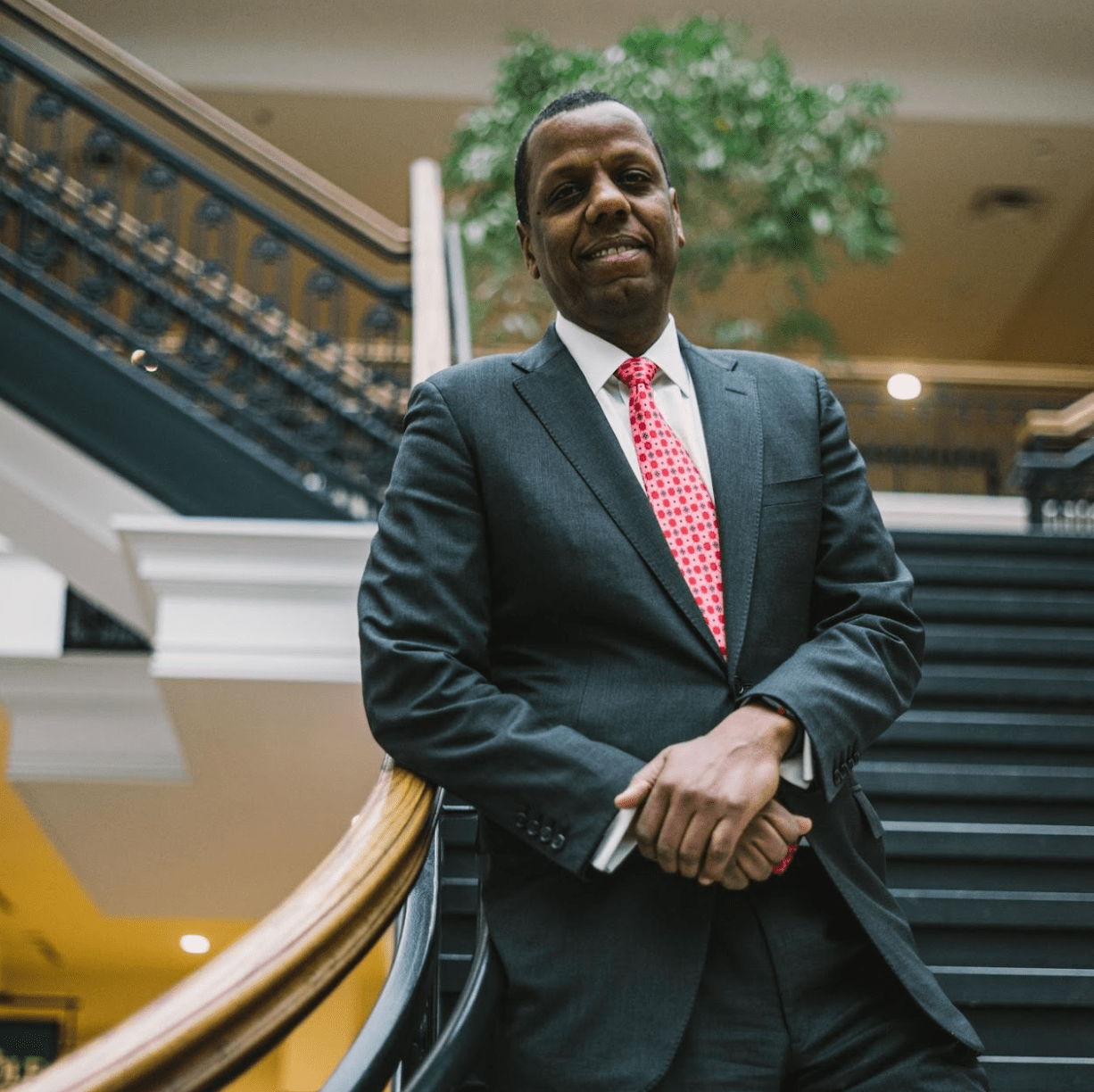The creators of the New York City-based financial technology platform MoCaFi ( https://mocafi.com/ ) joined with representatives of the Bank of New York Mellon to ring the New York Stock Exchange (NYSE) closing bell on June 9.
Ringing the NYSE bell on the trading floor heralded MoCaFi’s new call for people of color looking to get their finances in order.
Wole Coaxum, founder of MoCaFi, told the Amsterdam News in an exclusive interview that his company’s goal is to help broaden access to the financial services industry for the underbanked, and to create better, more attentive banking services for those who feel underappreciated by the financial service companies they currently bank with.
Coaxum created MoCaFi in 2016 after spending more than 20 years in the financial services industry. He had worked with Citigroup, Willis Financial, and JPMorgan Chase, but after the police killing of 18-year-old Michael Brown in Ferguson, Missouri, in 2014, Coaxum said he had a rethink about the direction his working life was taking.
“The financial services industry is a terrific industry to create change and economic prosperity for people, but it’s not doing it for all communities,” Coaxum said, declaring that he has real concerns about how economic and social justice issues are being handled by most financial institutions. “I wanted to use my time and my talents to create an economic justice agenda that can help the Black community move forward and address issues such as wealth inequality…I wanted to create a business that’s a sustainable business model for closing the wealth gap.”
In 2016, Coaxum created MoCaFi—Mobility Capital Finance, Inc.—as a digital banking
platform. There are no brick-and-mortar branches for the bank. Customers can open a MoCaFi Mobility Bank Account and obtain a MoCaFi Mobility Debit Mastercard via the company website or by downloading the MoCaFi app on their smartphones.
No credit score or Social Security Number is required to open an account. Accounts are available for undocumented people and even for people who have to use a foreign passport or ID.
MoCaFi’s central goal is to offer access to banking services to people of color, many of whom are unbanked or underbanked. The market research company Statista found that 13.8 percent of Black households were unbanked in 2019 , and a 2021 survey by the FDIC found that people without bank accounts either “Don’t have enough money to meet minimum balance requirements” or simply “Don’t trust banks” to protect their privacy.
Not having access to a bank account puts people at a disadvantage. During events like the recent COVID-19 pandemic, when the government was trying to help stabilize communities, those unable to access funds were in desperate straits.
“In Los Angeles, then-Mayor Eric Garcetti in the summer 2020 said, ‘I want to create contactless government. I want a way for residents to have single sign-ons for city services. I want a way for the residents of Los Angeles to receive money from city government and I want a way for people to pay for city services all electronically,’” Coaxum recalled.
“If you want to create a mechanism to pay people electronically and they don’t have bank accounts, how are you going to be able to do that? MoCaFi has created a solution called the Angeleno Connect Account . And now Los Angeles has the plumbing in place to be able to fulfill that vision that Mayor Garcetti had.”
As part of its latest efforts, MoCaFi will play a part in the NYC Civic Engagement Commission’s payout of $1 million in planning grants to groups that took part in the city’s Participatory Budgeting program. The company is also set to launch a new program called On Our Block that will bring banking services, financial programming, and resources to local communities of color.
“We see great opportunity in terms of finding ways of bringing people into the financial mainstream by working with partners like the Bank of New York Valley,” Coaxum said. “That’s why ringing the bell and the New York Stock Exchange for us is so impactful—because we want to re-imagine how you can engage people into the financial mainstream to create wealth. If the Black community, for example, was as fully banked as their white counterparts, that would create trillions of dollars of GDP in this country.
“There’s $5 billion just in New York City alone that’s been allocated to residents to help them move forward—but that’s not getting to the people because you don’t have the infrastructure to address that. At MoCaFi, we’re trying to address that problem.”
Like this:
Like

